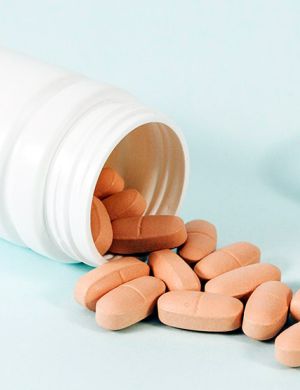
Avoiding Common Pitfalls: Tips for Complying with FDA Cosmetics Regulations
Under the Federal Food, Drug, and Cosmetic Act (FD&C Act), cosmetics are defined by their intended use—products applied to the human body for cleansing, beautifying, enhancing attractiveness, or altering appearance.
Most U.S. consumers use cosmetic products daily, averaging 6 to 12 products per person. The Modernization of Cosmetics Regulation Act of 2022 (MoCRA) represents the most significant expansion of FDA authority over cosmetics since the FD&C Act of 1938, enhancing protections for consumers and strengthening oversight.
MoCRA grants FDA several new authorities, including:
Records Access
When specific conditions are met, FDA may review and copy certain cosmetic product records, including those related to safety.
Mandatory Recall Authority
If FDA determines that a cosmetic product is adulterated or misbranded and could cause serious adverse health consequences or death, the agency may order a mandatory recall when a responsible party does not initiate one voluntarily.
MoCRA also introduces several new requirements for industry:
Adverse Event Reporting
Responsible persons must report serious adverse events related to cosmetic product use in the United States within 15 business days. They must also submit product label information and provide any updated medical information within one year of the initial report. FDA will have access to these records during inspections.
FDA is developing a formal process for mandatory adverse event reporting for cosmetics. Until then, electronic reporting through the Safety Reporting Portal (SRP) is recommended.
Facility Registration
Cosmetic product manufacturers and processors must register their facilities with FDA and renew this registration every two years.
FDA may suspend a facility’s registration if it determines that a product manufactured or processed there could cause serious adverse health effects, and the issue cannot be isolated or may impact additional products. When a registration is suspended, it becomes prohibited to sell or distribute cosmetic products from that facility in the United States.
Product Listing
Responsible persons must list each marketed cosmetic product with FDA, including its ingredients, and must update listings annually.
Safety Substantiation
Manufacturers and marketers must ensure their cosmetic products are safe. Although specific tests are not required by law, responsible persons must maintain records demonstrating adequate safety substantiation. Existing scientific data may be used, and animal testing is not required. However, all supporting data must come from scientifically sound methods.
Additional MoCRA Requirements
MoCRA directs FDA to issue regulations addressing:
Good Manufacturing Practice (GMP)
The FD&C Act prohibits introducing adulterated or misbranded cosmetics into interstate commerce. Following GMP recommendations helps manufacturers prevent such violations and supports effective internal quality assessments.
Labeling and Packaging Requirements
Cosmetic products sold in the United States—whether domestic or imported—must comply with the labeling requirements under the FD&C Act, the Fair Packaging and Labeling Act (FP&L Act), and FDA regulations issued under these laws.
Fair Packaging and Labeling Act
Ensures product labels provide accurate information on content quantity and allow consumers to compare value across products.
Misbranding Provisions Under the FD&C Act
A cosmetic is considered misbranded if:
- The labeling is false or misleading.
- The label fails to include:
- The manufacturer, packer, or distributor’s name and address
- The net quantity of contents
- Mandatory information is not displayed prominently or clearly for typical consumer use.
- The packaging or container is misleading in appearance or fill.
Don’t miss out! Click here to stay in touch.
Categories
- Biopharma (59)
- Consumer Health (22)
- Cosmetics (11)
- Diagnostics (5)
- Digital Health (8)
- Food (2)
- Medical Device (113)
- OTC (5)
- Regulatory Intelligence (13)
- Standards (41)
Recent Blogs
Get the latest updates from Vistaar

CONNECT WITH US

Let's talk about how Vistaar can help you





